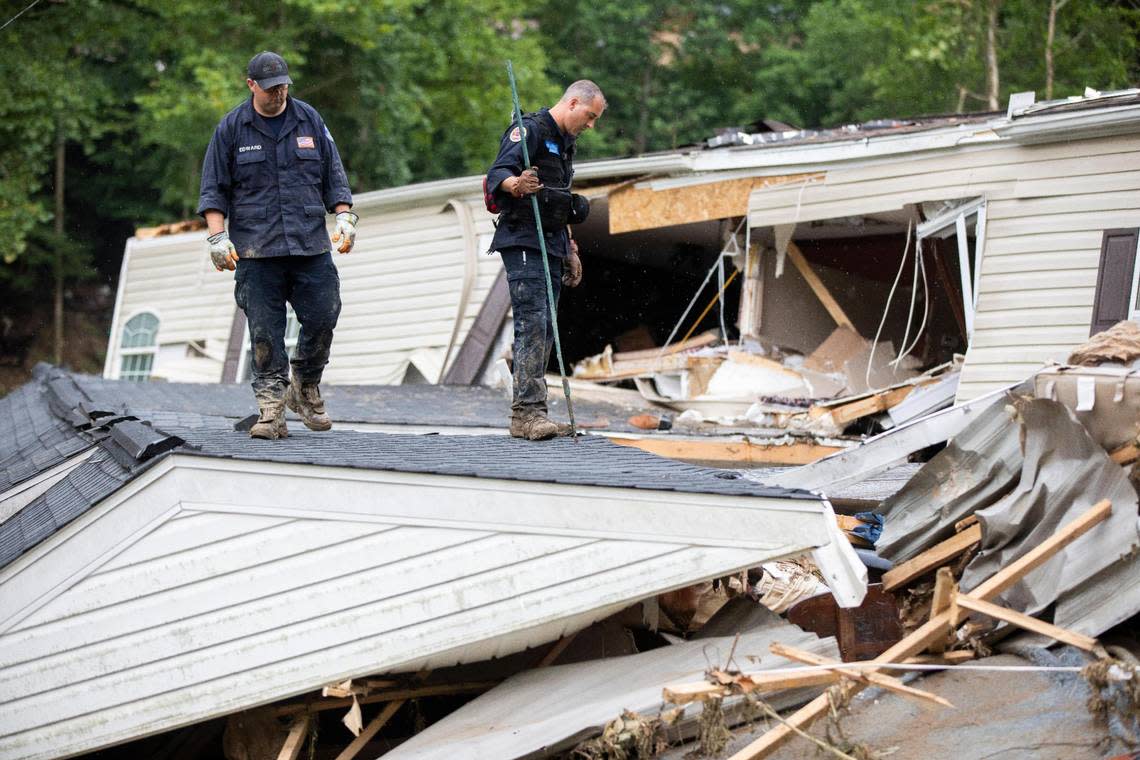When disaster hits, let’s agree to support one another no matter how we voted
The comments felt like gut punches, just one after another.
“You get what you pay for, folks.”
“These people have voted against their own self-interest for decades. ”
I was crushed reading these responses and dozens like them to a national reporter’s tweet about the floods that have devastated communities across Eastern Kentucky. I wondered how someone’s humanity could allow for this reaction to the death and destruction that has befallen our commonwealth. How could someone look at stories of children swept away from their families and immediately think of politics?
But this has sadly become a commonplace reaction to tragedies in our political culture — one so profoundly infested with the rot of partisanship that it becomes natural to use victims as opportunities to ‘own’ the other side for points on social media.
While today’s version comes from liberals around the country who feel comfortable chastising us for our electoral outcomes while our state drowns, it is a bipartisan trend. After the California wildfires of 2018 ravaged communities in one of our country’s most liberal states, conservatives jumped on it with similar tweets and memes. This social media-fueled dehumanization of tragedy is so potent a tool that we have inspired other nations to use it against us.
This is just the latest symptom of our increasingly depraved political culture in the United States. Over the past two decades, people’s dislike of others in an opposing political party has increased 400% in the United States. Partisanship is at a 50-year high. While this is a global trend, the United States ranks at the top of the world’s industrialized countries for political polarization.
Our hatred for each other is so intense that our political life is taking a toll on our physical health. A recent study from the University of Nebraska found that almost 40% of American adults find politics as a source of personal stress, citing that it causes fatigue, feelings of anger, and loss of temper.
And let’s be clear - this deep division can cause societies to collapse.
But, in our own home, we can find hope. Despite these trends, the past few days have shown that Kentuckians know the path forward and out.
As soon as it became clear that our Eastern Kentucky neighbors needed care, people across the state began organizing supply drop-offs, fundraisers, and mutual aid. Social media is helping those on the ground find necessities - clean water, medical supplies, bleach, and toilet paper. Cultural workers are scrambling to help preserve the archives at Hindman Settlement School and Appalshop. People are forming Facebook groups to reunite their neighbors with the family heirlooms and photographs that the flood stole from their homes.
Kentuckians reacted similarly when Western Kentucky was devastated by tornadoes last year. We rallied around communities like Mayfield, giving our time and treasure to those who had just lost everything. We didn’t stop to ask about their political persuasion before helping; we pitched in because that’s what a community does. This spirit was beautifully demonstrated this weekend by the Fire Department of Mayfield, who drove six hours across the state to assist in Southeast Kentucky.
I’ve had the good fortune over my life to become close friends and collaborators with many who are from the areas impacted by this weekend’s tragedy. They’ve taught me what it means to be a Kentuckian and how the fates of all our communities — rural and urban — are deeply linked. This lesson of intertwining fate is one I will hold on to until my last moments. After this week, it is clearer than ever that they are right. In this spirit, the people of Kentucky can be a guiding light out of the dark place that we find ourselves in as a country.
So, when Kentucky’s communities are rebuilt, let’s hold on to this urgency to care for each other unconditionally. Let’s remember to see each other as neighbors, not just political actors. Let’s sing the praises of the beautiful, resilient people of our commonwealth from the highest hills so the rest of our country can see that there is a better way.
And in the meantime, let’s continue to give our time and treasure to our neighbors in Southeast Kentucky.
Richard Young is the executive director of CivicLex, a civic health and literacy organization in Lexington.


